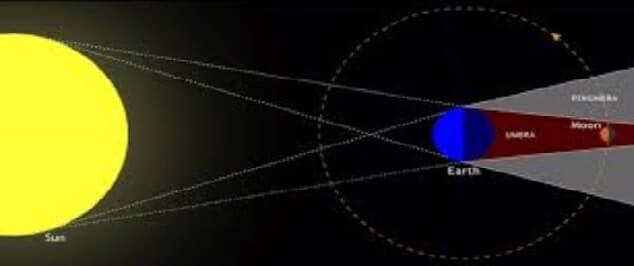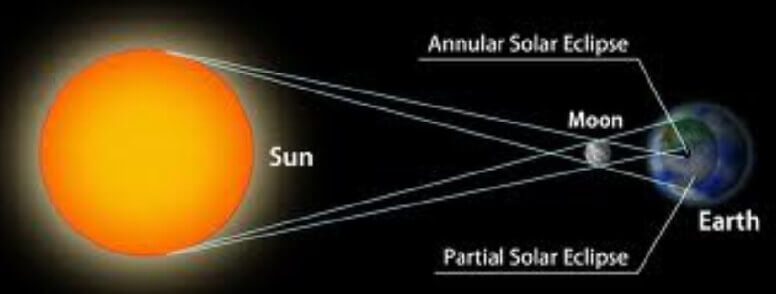In Hindu Culture, eclipses, or "Grahan," are powerful celestial events that hold significant meaning. These phenomena are not just seen as natural occurrences but as events with profound astrological and spiritual implications. Let's explore the importance of eclipses in Vedic astrology, their effects, and the rituals associated with them.
What Are Eclipses in Vedic Astrology?
Eclipses happen when the Sun, Moon, and Earth align in a straight line. There are two types of eclipses:
Solar Eclipse (Surya Grahan)
Solar Eclipse occurs when the Moon passes between the Earth and the Sun, blocking the Sun's light. This happens on a New Moon (Amavasya).

Lunar Eclipse (Chandra Grahan)
Lunar Eclipse takes place when the Earth is between the Sun and the Moon, causing the Earth's shadow to fall on the Moon. This occurs on a Full Moon (Poornima).

In Vedic astrology, Rahu and Ketu, the lunar nodes, play a crucial role in eclipses. These nodes are not physical bodies but are points where the Moon's orbit crosses the Sun's path. Rahu is the ascending node (north) where the Moon crosses from south to north, and Ketu is the descending node (south) where the Moon crosses from north to south. These nodes are always opposite each other in the zodiac, creating a powerful axis of influence.
Astrological Impact of Eclipses
Eclipses are considered times of significant change and transformation. Here's how they affect us:
- Karmic Cleansing: Eclipses are seen as opportunities for resolving past karma. They bring hidden issues to light, prompting necessary changes.
- Spiritual Growth: These periods are ideal for spiritual practices. Meditation, mantra chanting, and other rituals performed during an eclipse are believed to be highly beneficial.
- Personal Impact: The effect of an eclipse on an individual depends on where it falls in their natal chart. It can bring about major life changes, endings, or new beginnings.
- Emotional Imbalances: During an eclipse, the energies of rajas and tamas increase, potentially causing emotional imbalances.
- Global Influence: Eclipses can also affect countries and global events, often indicating times of upheaval or significant shifts.
Mythological Background
According to Hindu mythology, the story of Rahu and Ketu explains the significance of eclipses. During the churning of the ocean for nectar (Amrita), a demon disguised himself to drink the nectar. Sun and Moon exposed him, and Vishnu beheaded the demon. The head became Rahu, and the body became Ketu. In revenge, Rahu and Ketu periodically swallow the Sun and Moon, causing eclipses.
Rituals and Precautions During Eclipses
Certain rituals and precautions are recommended during eclipses to mitigate their negative effects:
- Avoid Looking Directly at the Sun: During a solar eclipse, the Sun's radiation can damage your eyes.
- Fasting and Avoiding Food: It's advised not to eat, drink, or cook during the eclipse to avoid bacteria and harmful germs.
- Stay Indoors: Refrain from starting new projects or making important decisions. Instead, focus on meditation and spiritual practices.
- Purification: Take a bath after the eclipse to cleanse yourself of negative energies.
Spiritual Practices and Remedies
Eclipses are ideal times for spiritual practices and remedies:
- Meditation: Engage in deep meditation and other spiritual activities.
- Charity: Perform charitable acts, such as donating to the needy.
- Mantra Chanting: Chanting mantras like the Mahamrityunjaya Mantra, Gayatri Mantra, and "Om Namah Shivaya" can be beneficial.
- Fasting: Fasting during the eclipse is recommended, except for pregnant women.
For pregnant women, it is advised to sit or lie on a mat containing darbha or kusha grass to avoid negative effects.
Conclusion
Eclipses, or Grahan, in Vedic astrology, are significant events that offer opportunities for spiritual growth and karmic resolution. By understanding their impact and following the recommended rituals and precautions, one can harness the transformative power of these celestial events for positive change.





